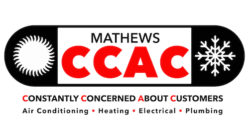
But flooding is just one type of disaster that can affect your home, as well as your vulnerable HVAC system. Fortunately, there are measures you can take to protect this valuable equipment from harm in a flood or other kinds of natural disasters.
Protecting Your Air Conditioner
The condenser is the section of your split system air conditioner that sits outside and is exposed to the elements. Fortunately, it’s a fairly sturdy piece of equipment, designed to withstand cold and heat, rain and wind. However, it’s never a bad idea to indulge in a little HVAC protection. Here are some tips on how to do it:
1. If your A/C is located in a flood-prone area, you may want to move it. Relocation could end up being less costly than replacing the unit. You may also want to elevate it on a concrete base so that flood waters are less likely to affect it.
2. Relocation may also be the best solution if your A/C is beneath a large tree. Large broken limbs or fallen tree trunks are just a fact of life during a hurricane, so think carefully about where to locate the condenser so that it’s out of the way.
3. You may be tempted to protect your condenser with a cover. Although these are manufactured commercially, be aware that covering the unit can encourage rodents and insects to build nests inside. Rodents are inclined to chew wires and can cause extensive damage. Rather than trussing the unit up in a cover, you could secure a piece of plywood over the unit to protect it from hail or flying debris.
To learn more about HVAC protection, contact CCAC, serving Corpus Christi and the surrounding area.
Our goal is to help educate our customers in Corpus Christi, Texas about energy and home comfort issues (specific to HVAC systems). For more information about HVAC topics, download our free Home Comfort Guide or call us at 361-678-2495.












